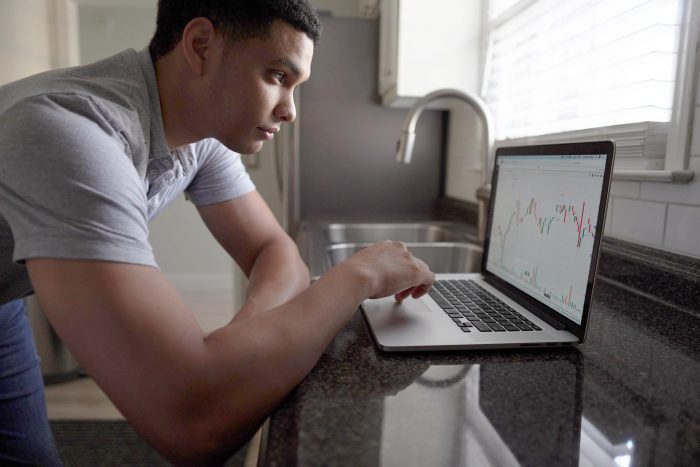By Michael E. Russell

What we do know is that often, history repeats itself. We tell our children that they need to learn from their mistakes. However, we never seem to follow our own advice. So where are we?
Trying to get a handle on how to manage our investments is proving to be difficult at best. The stock market is following every comment by Federal Reserve Chairman Jerome Powell, hoping for a guiding light.
This past Friday, stocks dropped after a strong opening despite a solid August payroll report. The report showed solid job growth, increasing labor force participation and slowing hourly wage increases. Perhaps this shows that inflation may have peaked. The report was positive enough to unlikely change monetary policy. In spite of this the S & P 500 Index still fell 1.1% with the Nasdaq Composite down 1.3%. This capped an awful August in which the S&P 500 fell more than 4%. That followed July’s 9% gain, the market’s most solid month in more than two years.
Okay folks, the lesson for today is which month to believe. Is this the start of a new bull market or is it a bear market rally?
Let’s talk about a sector of the market that is extremely perplexing. Social media is probably the most influential innovation of the 21st century. Think about this. In 2022, if an event does not appear on a social feed, it never really happened! Most of Wall Street has been blind-sided by social media’s troubles. With every passing year, digital advertising is near a point where the market is saturated.
Case in point: Facebook. This stock, under its new name Meta, traded at $175 during 2017. This past Friday, it closed at $160. Over the past five years it traded as high as $380. As we have learned this past year, market realities eventually trump technology. (Note: trump with a small ‘t’).
I have not spoken about Crypto in a few weeks, so here are some thoughts. If Bitcoin is crypto’s answer to gold, Ethereum is the closest thing it has to its own internet. For example, any person who wants to mint a new token or spend $150,000 on a Bored Ape non-fungible token, or NFT, probably uses the Ethereum network.
As of today, more than $3 billion in transaction volume flows through Ethereum daily. About $60 billion in crypto assets sit on its blockchain through third-party apps. Other than Bitcoin, there is no network that is more critical to crypto’s infrastructure going forward.
A stock I have owned, Nvidia, has been a casualty of a slowdown in hardware purchases. Recently, on the company’s last earnings call, it was stated that the stock has suffered from a slowdown in gaming and other core areas. It was also stated it could not predict how reduced crypto mining might hit demand for its products.
All of this new technology is growing way too fast for me. I am still having trouble learning all of the features on my iPhone.
With school classes resuming and the holidays fast approaching, here are thoughts on some retailing stocks. Target (tgt) looks to be a cheaper stock based on its P/E ratio than Walmart (wmt). There is a potential for 20% upside from its Friday close of $164. It trades at less than 16X earnings, while Walmart trades at 22X earnings — a 33% discount.
On the interest rate front, it looks like Chairman Powell will be calling for two more rate increases of 50 to 75 basis points each. Banks will be charging more for car, personal, business and mortgage loans, while paying little if any interest on your savings accounts. Hmm, not fair!!
Just a thought …With the President’s new plan on school loan forgiveness, would it not be a good idea to convert your 30-year mortgage to a school loan? Probably not legal, also just kidding! On a closing note, I just cannot wait for the IRS to put the 87,000 new inspectors to work. Have a great September.
Michael E. Russell retired after 40 years working for various Wall Street firms. All recommendations being made here are not guaranteed and may incur a loss of principal. The opinions and investment recommendations expressed in the column are the author’s own. TBR News Media does not endorse any specific investment advice and urges investors to consult with their financial advisor.








